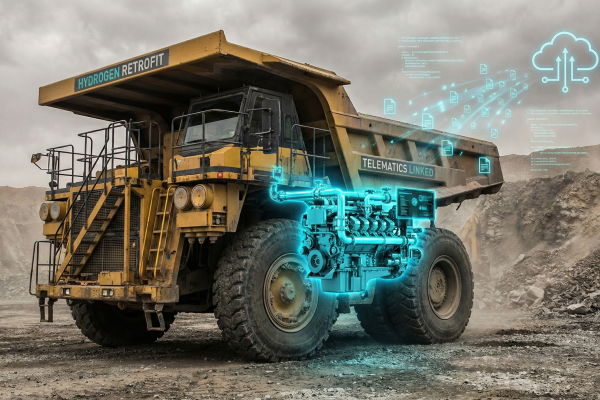January 3rd, 2022 | 08:59 CET
Bayer, Memiontec, Deutsche Telekom - With blue chips through inflation
When inflation rates started to rise in the USA and Germany, all sides initially said this phenomenon was temporary. In the meantime, it has become clear that the experts were wrong. Inflation has come to stay and brings inflation rates we have not seen for decades. In November, it was 5.2% in Germany. Typically, it would be the ECB's job to control inflation, but its hands are tied because of the interest rate problem. That leaves investors with the question of how best to protect their money. One option is to look at blue chips, three of which we will examine in more detail today.
time to read: 4 minutes
|
Author:
Armin Schulz
ISIN:
BAYER AG NA O.N. | DE000BAY0017 , Memiontec Holdings Limited | SGXE56008290 , DEUTSCHE TELEKOM ADR 1 | US2515661054
Table of contents:
Author
Armin Schulz
Born in Mönchengladbach, he studied business administration in the Netherlands. In the course of his studies he came into contact with the stock exchange for the first time. He has more than 25 years of experience in stock market business.
Tag cloud
Shares cloud
Bayer - Everything negative priced in
At the moment, Bayer is mainly associated with glyphosate lawsuits and has therefore had a challenging year. Not only are the lawsuits ongoing in the US, but proceedings could also be pending at the Cologne Higher Regional Court. It is being examined whether the Company adequately informed investors about the risks involved in the Monsanto takeover. In the worst case, claims for damages of around EUR 1 billion could be asserted here. Even with all the bad news through 2021, the stock has done well.
The main reason for this is the two businesses unrelated to the Monsanto acquisition. The pharma division is doing better and better, and the consumer health division is also doing well. Both continue to generate positive news. Last December alone, Finerenone was recommended for EU approval, and the FDA also approved Xarelto in the US. The Q3 2021 numbers showed a significant increase in sales and earnings.
At some point, the lawsuits surrounding Monsanto will end, and then the Company will be well-positioned. For 2022, analysts expect an increase in sales at the Group of EUR 1.8 billion to EUR 44.9 billion and EBITDA is also expected to increase. If the experts' expectations are met, the price/earnings ratio would improve further and be below 7 at a constant share price of EUR 47. The current dividend yield is over 4%. The downside seems limited, with a lot of upside potential at the same time.
Memiontec - Water is a scarce commodity in the future
Due to climate change and the steadily increasing world population, clean drinking water is becoming increasingly scarce, especially in Asia. Global water demand will double by 2060. Thus, water treatment is a future-proof market in which Memiontec has positioned itself excellently. The Company, headquartered in Singapore, has been working in the field of wastewater and water management for over 2 decades and now covers the entire value chain.
The main business, in the beginning, was project business, but today the Company is much more diversified. On the one hand, it is mainly active in Singapore, China and Indonesia. Secondly, the business is now based on four pillars. The first pillar is the development of water and wastewater treatment solutions, followed by maintenance and technical support for the designed solutions and plants. It also sells modular water systems and components for water treatment. The newest and at the same time the most interesting area is the sale of water. The Company co-owns BOOT and TOOT projects that promise recurring revenues for about 25 years.
It is becoming increasingly important for companies to care for their wastewater and not waste water from a sustainability perspective. Memiontec has quite a few big names on its customer list. Among them are Nike, Pepsico and Micron. In early August, the stock rallied from 0.24 Singapore dollars (SGD) to SGD 0.90. Since mid-October, the consolidation seems to be complete, and the share has been running sideways between SGD 0.585 and SGD 0.80. Currently, the share price stands at SGD 0.725. The paper is also traded in Frankfurt and appeals to dividend hunters, with the Company paying out 25% of its after-tax earnings as a dividend.
Deutsche Telekom - Sale of radio towers
Telephone calls are always made, and the Internet has become an indispensable part of our lives. Deutsche Telekom provides the infrastructure for this. The Corona pandemic is forcing politicians to finally push ahead with their digitization plans. The Group should be able to benefit from this. To avoid bearing the high costs of infrastructure expansion alone, the Company is taking a new approach and looking for partners for fiber-optic development in Austria and Poland. The high level of debt is also forcing management to rethink.
This rethinking will be driven by the old Telekom CEO Höttges, who extended his contract early in mid-December. Appel, the head of Deutsche Post, will become the new chairman of the Supervisory Board at Telekom. Among the considerations of the top management is the sale of its 33,000 radio towers. It is currently unclear how many shares the Group will retain. The valuation is set at EUR 20 billion. The sale is expected to begin at the end of the first quarter. According to reports, the Company prefers to sell to a competitor rather than a pure investor.
Even though the analyst firm Bernstein Research recently lowered its target price to EUR 24.60, the analysts are convinced that the target price for the share is at least EUR 21. Therefore, the share, which is currently trading at EUR 16.30, still offers significant upside potential. In addition, the dividend of just under 4% further secures the investment. If the Company succeeds in acquiring a majority stake in T-Mobile US, this should give the stock a further boost.
You cannot go far wrong with all three companies. They are all well prepared for the future. Bayer's stock will come to life at the latest once the glyphosate proceedings have been concluded. Memiontec already occupies the future market of water. Long-term water sales offer planning security. Deutsche Telekom, with its CEO Höttges, has already shown that it can create added value for shareholders. He will now stay on board longer and hopefully continue the success story.
Conflict of interest
Pursuant to §85 of the German Securities Trading Act (WpHG), we point out that Apaton Finance GmbH as well as partners, authors or employees of Apaton Finance GmbH (hereinafter referred to as "Relevant Persons") may in the future hold shares or other financial instruments of the mentioned companies or will bet on rising or falling on rising or falling prices and therefore a conflict of interest may arise in the future. conflict of interest may arise in the future. The Relevant Persons reserve the shares or other financial instruments of the company at any time (hereinafter referred to as the company at any time (hereinafter referred to as a "Transaction"). "Transaction"). Transactions may under certain circumstances influence the respective price of the shares or other financial instruments of the of the Company.
Furthermore, Apaton Finance GmbH reserves the right to enter into future relationships with the company or with third parties in relation to reports on the company. with regard to reports on the company, which are published within the scope of the Apaton Finance GmbH as well as in the social media, on partner sites or in e-mails, on partner sites or in e-mails. The above references to existing conflicts of interest apply apply to all types and forms of publication used by Apaton Finance GmbH uses for publications on companies.
Risk notice
Apaton Finance GmbH offers editors, agencies and companies the opportunity to publish commentaries, interviews, summaries, news and etc. on news.financial. These contents serve information for readers and does not constitute a call to action or recommendations, neither explicitly nor implicitly. implicitly, they are to be understood as an assurance of possible price be understood. The contents do not replace individual professional investment advice and do not constitute an offer to sell the share(s) offer to sell the share(s) or other financial instrument(s) in question, nor is it an nor an invitation to buy or sell such.
The content is expressly not a financial analysis, but rather financial analysis, but rather journalistic or advertising texts. Readers or users who make investment decisions or carry out transactions on the basis decisions or transactions on the basis of the information provided here act completely at their own risk. There is no contractual relationship between between Apaton Finance GmbH and its readers or the users of its offers. users of its offers, as our information only refers to the company and not to the company, but not to the investment decision of the reader or user. or user.
The acquisition of financial instruments entails high risks that can lead to the total loss of the capital invested. The information published by Apaton Finance GmbH and its authors are based on careful research on careful research, nevertheless no liability for financial losses financial losses or a content guarantee for topicality, correctness, adequacy and completeness of the contents offered here. contents offered here. Please also note our Terms of use.




